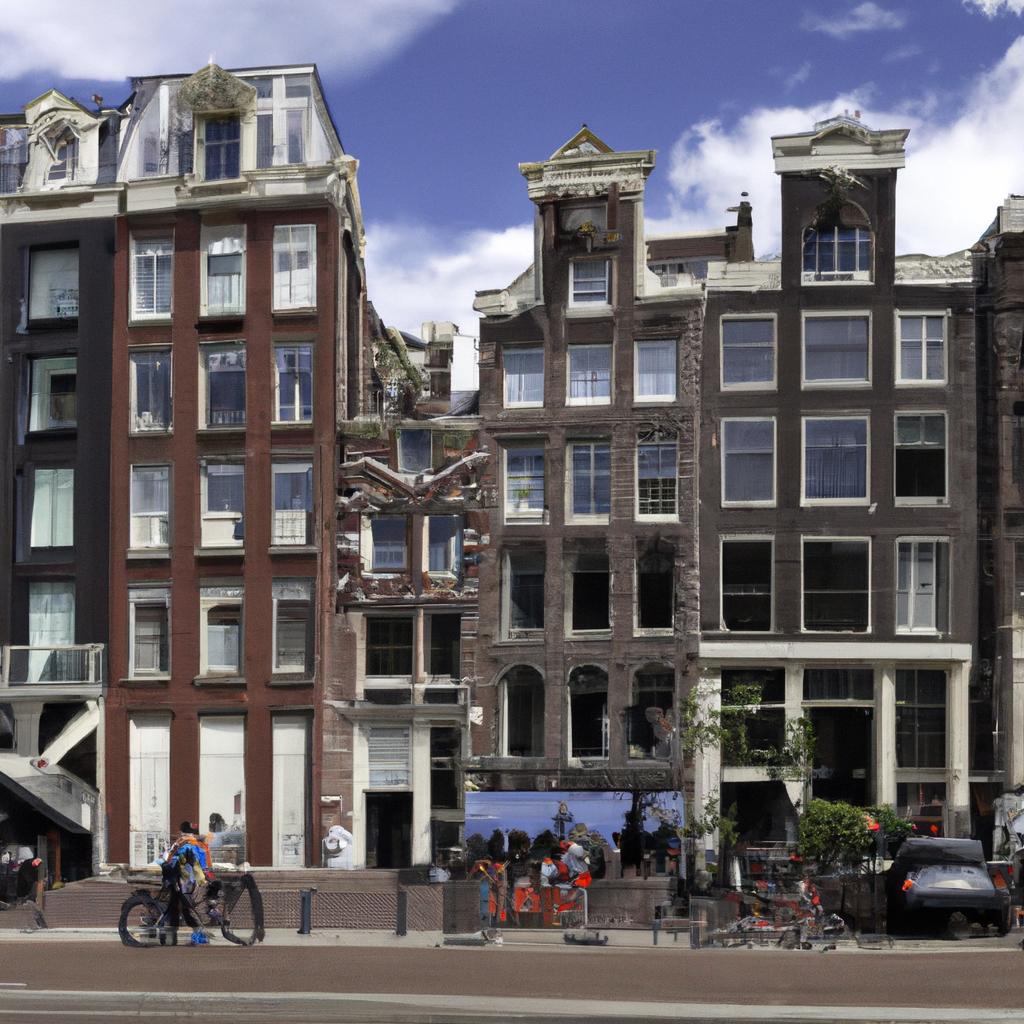In the midst of a growing wave of mass tourism, Amsterdam has taken an unconventional approach to preserving its charm and character. The Dutch capital, known for its picturesque canals and vibrant culture, has imposed a ban on new hotels in an effort to curb the influx of visitors. With the belief that you can’t put a fence around Amsterdam, the city is taking a stand to protect its identity from the pressures of overtourism.
Challenges of Overtourism in Amsterdam
Overtourism in Amsterdam has become a pressing issue, with the city facing challenges such as overcrowding, environmental degradation, and cultural erosion. As a response to this growing problem, the Dutch capital has recently implemented a ban on new hotels in an effort to curb mass tourism. This bold move aims to address the negative impact of overtourism and prevent the city from becoming overwhelmed by the influx of visitors.
The ban on new hotels is a clear signal that Amsterdam is taking proactive steps to manage the effects of overtourism. By limiting the number of accommodations available, the city hopes to control the flow of tourists and preserve its unique character and charm. This decision reflects a commitment to sustainable tourism practices and highlights the importance of balancing the benefits of tourism with the need to protect the local environment and community. Moving forward, it will be interesting to see how Amsterdam continues to navigate the challenges posed by overtourism while maintaining its status as a popular destination for travelers around the world.

City’s Decision to Ban New Hotels
Amsterdam, a city known for its picturesque canals, historic architecture, and vibrant cultural scene, is taking a stand against overtourism by prohibiting the construction of new hotels. The Dutch capital has been grappling with an influx of visitors in recent years, leading to concerns about overcrowding, environmental impact, and the displacement of local residents.
The is part of a broader effort to strike a balance between catering to tourists and preserving the quality of life for residents. By limiting the growth of accommodation options, officials hope to encourage more sustainable tourism practices and protect the unique character of Amsterdam. This move reflects a growing trend among popular travel destinations to prioritize the well-being of local communities over the demands of mass tourism.

Impact on Local Economy and Residents
Amsterdam’s recent decision to ban the construction of new hotels in an effort to combat mass tourism has sparked a heated debate among locals and city officials. This move comes as a response to the growing concerns about the negative impact of tourism on the local economy and residents. With over 18 million visitors flocking to the city each year, Amsterdam has become overcrowded and overburdened with the influx of tourists.
The ban on new hotels aims to alleviate the strain on the city’s infrastructure and preserve the unique charm of Amsterdam for its residents. By limiting the number of accommodations available to tourists, city officials hope to encourage a more sustainable model of tourism that benefits both the economy and the local community. This decision signals a shift towards responsible tourism practices that prioritize the well-being of residents and the long-term sustainability of Amsterdam as a global destination.

Sustainable Solutions for Managing Tourism
Amsterdam, known for its picturesque canals and historic architecture, has become a victim of its own popularity in recent years. The city has been struggling to cope with the influx of tourists, leading to overcrowding, environmental degradation, and an increase in housing prices. In a bold move to address these issues, Amsterdam has decided to ban the construction of new hotels in the city center.
This new measure aims to curb mass tourism by limiting the number of accommodations available to visitors. Instead of building more hotels, the city plans to focus on , such as promoting alternative lodging options like bed and breakfasts and short-term rentals. By taking this proactive approach, Amsterdam hopes to strike a balance between preserving its unique culture and heritage and meeting the needs of its visitors.
To Conclude
As Amsterdam takes a stand against overtourism by banning new hotels, the city sends a clear message that preserving its unique character and heritage is paramount. By embracing sustainable tourism practices, Amsterdam sets an example for other popular destinations grappling with similar issues. As visitors continue to flock to this vibrant city, it remains to be seen how these new measures will shape the future of tourism in Amsterdam. Only time will tell if this bold move proves to be a successful solution in managing the delicate balance between attracting visitors and protecting the local environment and culture. Amsterdam may not be putting a fence around itself, but it is certainly building a stronger foundation for a more sustainable future.



